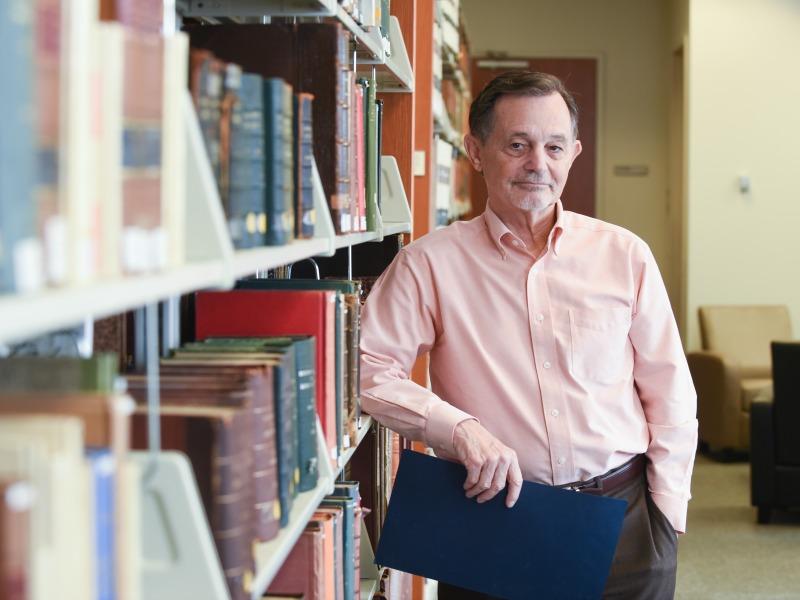The Public Law Center: Training the Next Generation of Civic Leaders
Tulane Law students don’t just read and study law; they draft it.
Former Tulane Law student Abel Delgado (L ’13) drafted a language access ordinance that could benefit Limited English Proficiency residents in New Orleans and around the country.
“It’s exciting to know that research and drafting work I did in the clinic might someday soon help Spanish and Vietnamese speakers engage meaningfully with city government,” he said.
The ordinance prioritized translation and interpretation assistance in departments delivering public safety and emergency services.
The Public Law Center (TPLC) at Tulane Law School has trained hundreds of students to draft bills, ordinances, regulations, executive orders, and Home Rule Charter provisions since the Center’s inception in January 1988.
Most students might reasonably graduate from law school thinking that the vast majority of law in our society is produced by appellate judges, since students relentlessly read appellate judicial opinions throughout their legal education. But in fact, legislators outpace appellate judges by enacting vast bodies of local, state, and federal statutes, and agency personnel generate even vaster amounts of administrative rules to implement statutory law.
Students in the Legislative and Administrative Advocacy Clinic research and draft proposed bills or agency regulations, present their instruments in a mock hearing before actual state legislators, and write a research paper. Students study the legislative enactment process, agency rulemaking under the Administrative Procedure Act, plain language drafting techniques, public access to information, lobbying laws, constitutional restrictions on the legislative enactment process, and governmental ethics codes.
Students’ bills or proposed agency rules frequently become law. Initiatives drafted by Tulane Law students have required the award of public contracts to be discussed in open meetings, eased the rules for expungement of criminal records, created the Domestic Violence Law Enforcement Training Task Force, enacted an innovative code lien enforcement process for blighted property, and updated the state’s disability discrimination laws—all in the service of public interest clients.
Professor David Marcello (L'71) has directed TPLC since its founding in 1988. The Center embraces two core purposes—delivering clinical education for second and third-year law students and rendering services to clients who are traditionally underrepresented before legislative bodies and in state agency rulemaking proceedings.
“When all voices are not equally well-represented, inequality in the debate produces inequities in the outcome,” Marcello said. “Giving voice to views that would otherwise be inadequately represented in the policymaking process lends vitality and democratic legitimacy to government.”
In addition to training students, TPLC convenes a two-week International Legislative Drafting Institute each June that has trained more than 700 graduates from emerging and fledgling democracies in more than 100 jurisdictions around the world since 1995. Marcello and Assistant Director Idella Wilson have visited South Africa, the Dominican Republic, Moldova, Mongolia, the Republic of Georgia, Bulgaria, Tajikistan, Nigeria, Uganda, Vietnam, and South Sudan to train members of parliament, ministry personnel, judges, academics, and representatives of non-governmental organizations.
Marcello came to Tulane with nearly two decades of experience in private practice and public service, including a stint (1978-80) as Executive Counsel to the first African-American Mayor of New Orleans, Ernest N. “Dutch” Morial. He played a leadership role in four of five mayoral transitions during 1977-2010 and recently conducted TPLC’s City Council Transition Project 2018 during a five-month run-up to the May inauguration of five newly-elected Council members.
Following Hurricane Katrina, Marcello engaged deeply with the city’s recovery, advising policy makers and writing articles and op-eds in the particular areas of housing and ethics. His 2007 Loyola Law Review article addressed “Housing Redevelopment Strategies in the Wake of Katrina and Anti-Kelo Constitutional Amendments: Mapping a Path Through the Landscape of Disaster.” He served as pro bono counsel to the Ethics Review Board during its critical start-up years in 2007-09 and contributed a chapter on “Systemic Ethics Reform in Katrina’s Aftermath” to the Brookings Institution book Resilience and Opportunity (2011).
Leg/Ad students who have gone on to legislative careers in Louisiana include U.S. Congressman Cedric Richmond, State Sen. J.P. Morrell, and House Speaker Pro-Tem Rep. Walt Leger, Jr. Other alumni of the clinic have established careers for themselves in federal, state, and local legislative drafting offices; in governmental affairs positions; and in public service legal work.

